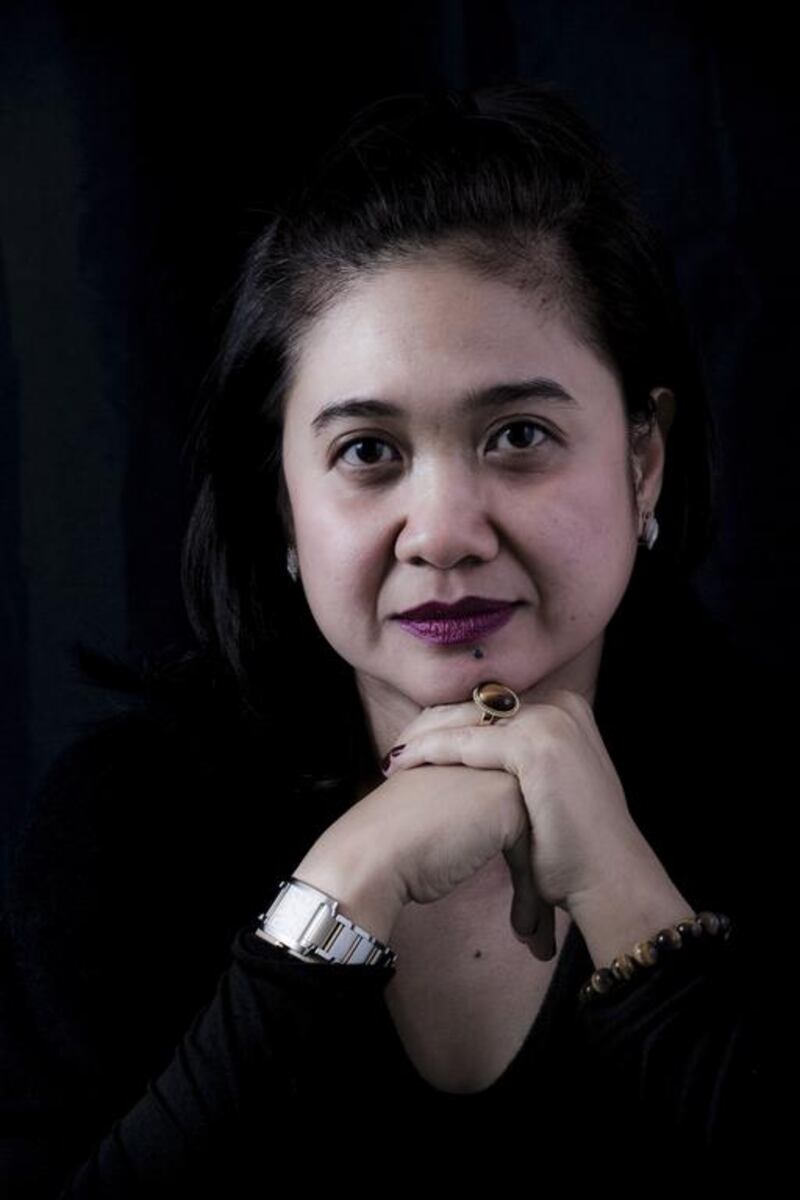The beloved Filipino actress and comedian Eugene Domingo tells Hugo Berger why she decided to take on a gruelling role as a widow dealing with bigots in the rural Philippines
Of all the Q&A sessions that followed movie showings at Abu Dhabi Film Festival this year, the one for the Filipino film Barber’s Tales was probably the most raucous.
Instead of being a sedate explanation by the filmmakers of their work, when its lead actress Eugene Domingo arose after the screening to field questions, she received rapturous applause and adulation from the audience.
At one point, when the compere requested questions from the floor for Domingo, one woman loudly declared: “This isn’t a question for Eugene, we just want to say we love you.”
Ironically, considering the noise in the cinema that evening, the film that preceded it was a relatively sombre affair.
The drama was also a marked departure from the screwball comedies that Domingo is famous for.
The decidedly low-key movie is set in the martial-law period of the Philippine president Ferdinand Marcos’s rule in the 1970s. Domingo plays Marilou, the browbeaten wife of the owner of a village barbershop.
When her husband dies suddenly in his sleep, our heroine is persuaded by the local priest to keep the business open. Eventually, she shows such adeptness with the scissors that the community’s menfolk overcome their misogynistic reservations about having a woman cut their hair.
All this is played against the backdrop of the struggle between the forces of Marcos and Communist insurgents, both of whom try to draw Marilou into their fold.
The most compelling aspect of the piece is Domingo’s brilliantly understated performance.
However, she takes umbrage when it’s suggested to her that she’s a newcomer at playing dramatic roles.
“Who told you that? I am a dramatic actress,” she insists.
“But you’re right, I have done a lot of comedy films in the mainstream for the past 10 years. This is the first official full-length drama I’ve done.”
The reason she usually opts for comedy, she says, is because she finds serious roles so demanding.
“Dramatic roles are so tiring. I have to bring all these feelings into the part,” she reveals. “I had to avoid eating sweets and other things I enjoy, so I really felt the sadness of the character.
There were other travails during the shoot. “It was also hard physically, because we were filming in a remote place in Tanay Rizal.
“There was no electricity, no cables, no signal, it was like going back in time. We had a tough time filming.
“But I’m glad I said yes to the project because it’s a very powerful script and as an actor I want to convey a message that’s more substantial.”
The hardships seem to have paid off for all concerned. Critics have praised the film’s accurate depiction of the political turmoil of the Marcos era, while Domingo has been lauded for her acting talents.
At the recent Tokyo Film Festival, for instance, she walked away with the Best Actress prize.
“This was huge for me. We’ve been praying for [the award] because we need this to help promote the film. But it’s not about me any more, I want to help make our country’s films better known around the world.”
That said, her next role is more stock-in-trade for her. “It’s [a prequel to her 2009 comedy] Kimmy Dora and I play twins in it,” she says. While Barber’s Tales may win love from the critics, Domingo knows where to earn her crust.
hberger@thenational.ae





